A look at a Susan Howlette’s conference session, Tending Partner and Donor Relationships, with an eye toward DEI. Reflections by Michael Hale
Prior to conference, our team committed to listening to at least one of our sessions with an eye towards learning and evaluating it around MNA’s values around diversity and equity. This work can easily focus on the tactics we observed or did not, but as I reflect on my take-aways, I find myself looking much more inward and being genuinely affected by a simple example of a presenter being mindful and intentional in her approach to incorporate DEI principles into her session. I would like to hold space around the idea of thoughtfulness.
Before exploring this idea in a DEI context, let me share some observations from Susan Howlett’s session on Tending Partner and Donor Relationships. Susan began her introduction with her credentials, pronouns, and a short statement about being a white woman having done fundraising work for the last 40 years. She acknowledged the methods she was about to share work, but they are inherently based in that experience. Susan also mentioned that while she was doing her best to be sensitive to other lived experiences, she asked for participants to let her know if something she said causes harm, so that she can do better for future audiences. Her session was marked by open dialogue, often soliciting contributions from every table. Later, when someone asked about Community Centric Fundraising (CCF), she acknowledged that is another worthwhile approach, but that was not what she was teaching. She was not dismissive of that approach, but was honest that indeed, her approach centers the donor’s experience with the organization.
Susan’s session was not a session about DEI, but she provided a model that I found striking. She was thoughtful. She intentionally made space for varied lived experiences in the room by not assuming everyone shared her own. For some of our readers, stating pronouns may seem ridiculous, but acknowledging her own didn’t detract from the content. It did however make space for those who do not identify in traditional cis-gendered ways. Thoughtfulness means taking someone else’s needs into account and finding it worthwhile to make an accommodation for them.
Susan’s day long workshop centered around one premise—relationships (in this case partners and donors) take work. To paraphrase the thesis Susan developed throughout her session: Our people need to hear from us in meaningful ways if we want them engaged with the work we do. That means active (not passive) outreach. Handwritten cards, calls, dinners, invitations… being thoughtful.
Perhaps then, an entry point to the work of promoting belonging and equity is by embracing thoughtfulness and of centering the experiences outside of our own.
Questions & Feedback
Have a story to share, feedback, or advice? You can email us privately at [email protected], share your thoughts on this anonymous form, or add to the conversation on our community forum.

